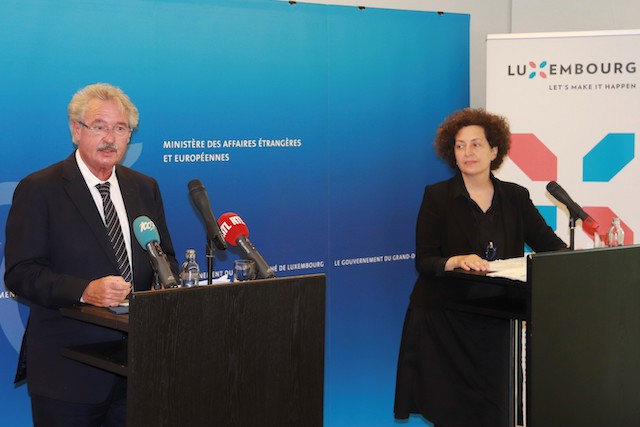Foreign minister Jean Asselborn on Wednesday presented plans for Luxembourg’s image campaign for 2021 to 2025, based on consultation of internal and external stakeholders that began in 2019.
“Luxembourg continues to be perceived by some through the prism of the label of ‘tax haven’, as a country whose highest value is money and therefore, by extension, as a country which, in the moral sense, does not have real values,” a presentation about the new campaign says.
The scheme will therefore aim to put Luxembourg’s EU commitments, its support of migration, development aid and sustainability in the public eye.
“Our vision is to secure Luxembourg's positioning as a committed player on the international scene, a strong ally in the context of sustainable growth, a facilitator of innovative ideas that can contribute to a better world,” documents presented on 30 June say.
The next phase of the nation branding campaign comes after the introduction of the Let’s Make it Happen slogan and logo in 2017 and as the country prepares to take part in the Dubai World Expo later this year while also running for a seat on the UN Human Rights Council.
It builds on the values identified as being characteristic of Luxembourg in the earlier stages of the campaign: open, dynamic and reliable.
The new themes--creativity, diversity and sustainability--should help all players involved in promoting Luxembourg abroad fill the Let’s Make It Happen slogan with life, the presentation says. Notably, it should make clear what “It” is.
This applies to sectors as varied as culture, research and development and the economy but also civil society organisations and, of course, the government itself.
Target countries in Europe include the greater region neighbours but also Denmark, Italy, the Netherlands, Portugal, Sweden, Switzerland and the UK, while internationally Brazil, Canada, Cape Verde, China, India, Israel, Japan, Singapore, South Korea and the US are on the list of target countries.
A more detailed action plan is being developed, which will include social media campaigns, working with international media and other activities.
